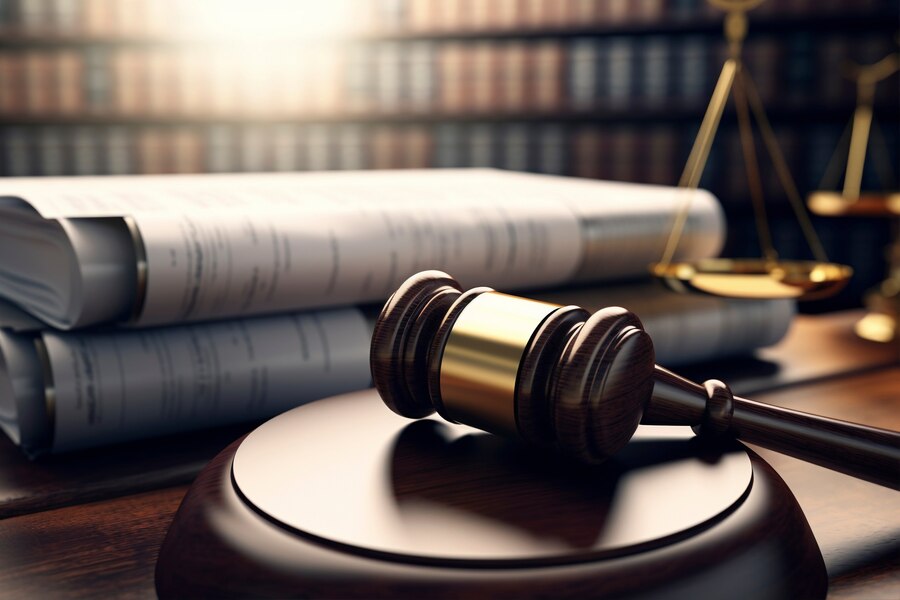
In the intricate world of personal injury law, a single misstep can significantly impact the outcome of your case. Whether you’re a victim of a car accident, workplace mishap, or a slip and fall, knowing the expert legal strategies employed by a seasoned Redwood City personal injury lawyer can be instrumental in getting the compensation you rightfully deserve.
This discussion aims to shed light on the various aspects of these strategies, including understanding personal injury law, determining liability, gathering and managing evidence, navigating insurance tactics, and the role of state laws. But how exactly does a seasoned lawyer use these elements to build a strong case? This is a question that warrants further exploration.
Understanding Personal Injury Law

While personal injury law may seem complex, it is essentially a legal recourse that allows an individual who has suffered harm, due to another party’s negligence or intentional conduct, to seek compensation for their losses. This field of law is often misunderstood, leading to various personal injury myths that can deter potential claimants from pursuing their legal rights.
One such myth is the belief that compensation is only available for physical injuries. In reality, compensation types extend beyond physical harm to include emotional distress, loss of earnings, and damage to property. This comprehensive approach ensures that victims are adequately compensated for all aspects of their suffering.
Another prevalent myth is that personal injury claims are always lengthy and convoluted. While some cases can be complex, with skilled legal representation, many can be resolved efficiently and effectively. By debunking these myths, we can encourage more individuals to seek the compensation they deserve.
Determining Liability In Your Case
Establishing liability in a personal injury case is a critical step, as it involves proving that the defendant’s negligence or intentional conduct directly caused the claimant’s harm. Under different liability theories, such proof is vital to secure a favorable judgment or settlement.
The principle of negligence is central to most personal injury cases. To establish negligence, it must be shown that the defendant had a duty of care towards the claimant, breached that duty, and the breach directly resulted in harm or injury. Purposeful wrongs, where the defendant’s intentional actions caused harm, are another common liability theory.
Contributory negligence, on the other hand, is a defense often used by defendants. According to this theory, if the claimant is found to have contributed to their injury, their compensation may be reduced or denied. It’s crucial to counter such defenses effectively, which requires gathering compelling evidence and constructing a solid legal argument.
Determining liability is a complex process that can significantly impact your case’s outcome. Therefore, it is advised to work with a skilled personal injury lawyer who has expertise in different liability theories and can effectively combat defenses like contributory negligence.
Importance Of Gathering Evidence
In the arena of personal injury law, the meticulous gathering of evidence serves as the linchpin to establishing a convincing and successful claim. This process requires knowledge of evidence-preservation techniques, which can significantly strengthen your case, and ultimately, your chances of receiving just compensation.
Evidence can range from physical objects, and medical records, to digital evidence. The latter has gained prominence recently due to the ubiquity of smartphones and surveillance cameras. The impact of digital evidence, such as photos, videos, or messages, cannot be overstated. They can corroborate your account of the incident, establish the extent of your injuries, and prove the negligence of the defendant.
However, evidence, especially digital, can be ephemeral. Therefore, it’s crucial to preserve it promptly and correctly. Techniques may involve securing the device, making copies, or using specialized software. It’s advisable to seek the guidance of a seasoned Redwood City personal injury lawyer who is adept at these techniques.
Role Of Medical Records
Building on the importance of evidence in personal injury cases, it’s essential to underscore the crucial role played by medical records in substantiating the extent of physical harm and the subsequent impact on the victim’s life.
Medical records serve as a factual, objective measure of the injury sustained, providing irrefutable proof of the nature and extent of the physical harm. They encompass everything from initial diagnosis to treatment plans, prescriptions, and follow-up visits. In cases of medical malpractice, these records can highlight discrepancies in treatment, negligence, or substandard care, thereby strengthening the plaintiff’s case.
Equally important is the principle of record confidentiality. Medical records are protected by privacy laws. In the legal arena, however, they can be obtained through a subpoena, with the victim’s consent. This ensures that the privacy rights of the claimant are respected while permitting the necessary disclosure for the court to evaluate the claim’s legitimacy.
Navigating Insurance Company Tactics

Successfully maneuvering through the complex maze of insurance company tactics is a pivotal component of any personal injury case, demanding astute analysis and persuasive negotiation skills. Insurance companies employ a range of strategies designed to minimize their financial liability, often capitalizing on the complexity of the claim process and policy loopholes.
The claim process can be intricate and time-consuming, often designed to wear down claimants or encourage them to accept lower settlements. A savvy personal injury lawyer can guide you through this procedure, ensuring all necessary documentation is submitted promptly and that you understand each stage of the process.
Insurance companies also exploit policy loopholes, using ambiguous language or hidden clauses to deny or reduce claims. An adept attorney can analyze your policy, identify these potential traps, and use legal strategies to counteract such tactics.
The Value Of Expert Witnesses
Leveraging the testimony of expert witnesses can dramatically strengthen a personal injury case, providing objective, specialized insights that substantiate a claimant’s assertions and counteract opposing arguments. An expert witness offers value in several critical areas:
Witness Credibility: The professional qualifications and experience of an expert witness lend significant credibility to their testimony. Their reputation and demonstrated knowledge in their field can persuade a jury to trust their interpretation of complex issues.
Expertise Relevance: Expert witnesses are selected for their specific knowledge related to the case. For example, a medical expert can provide meticulous details on a claimant’s injuries, prognosis, and the impact on their quality of life.
Objective Analysis: Expert witnesses offer an impartial perspective. They analyze the facts and present evidence understandably, helping the jury discern the truth from the technicalities.
Settlement Negotiation Strategies
A personal injury lawyer’s adeptness in settlement negotiations significantly influences the outcome of a case, requiring a firm grasp of legal expertise, effective communication, and strategic bargaining tactics. Understanding negotiation psychology is pivotal in this process. It allows the lawyer to predict and manipulate the opposing party’s reactions and decisions, thereby enhancing the chances of a favorable settlement.
Tapping into the power of mediation benefits is also crucial. Mediation provides a neutral platform for the parties to openly discuss their demands and concerns. It fosters a collaborative environment conducive to reaching a mutually satisfactory agreement, hence saving time and reducing litigation costs. A skilled negotiator acknowledges this and utilizes it to their client’s advantage.
The lawyer’s approach must be firm yet flexible, always ready to revise the strategies in response to the changing dynamics of the negotiation. They should be prepared to present compelling evidence, argue persuasively, and exploit any weaknesses in the adversary’s case.
When To Go To Trial
While mastering negotiation dynamics is integral for a successful settlement, there are instances where personal injury lawyers must consider the strategic move to proceed to trial. This decision should not be taken lightly; it hinges on a comprehensive analysis of the case, the client’s best interest, and potential trial outcomes.
The process involves:
Jury selection: Carefully vetting potential jurors is a critical step. An understanding of human behavior and biases can help in selecting a jury that will be receptive to your client’s case.
Trial duration: A trial can be a protracted process. The lawyer must evaluate whether the client can endure the lengthy litigation process, both emotionally and financially.
Assessment of evidence: The available evidence must convincingly prove the other party’s liability to sway the jury’s decision in your favor.
Managing Legal Documentation

In the intricate web of personal injury litigation, effective management of legal documentation serves as a pivotal cornerstone, necessitating scrupulous attention to detail, careful organization, and strategic use to ensure a persuasive presentation of the client’s case. Document Organization is not merely about filing paperwork in chronological order; it involves creating a system that allows easy access to relevant information at critical junctures.
Understanding and correctly applying Legal Terminology ensures that the documents relay a compelling narrative, while maintaining clarity and precision. Misinterpretation of a single term can significantly alter the meaning and impact of a statement, potentially jeopardizing the client’s case.
Furthermore, a keen eye for detail is essential in spotting discrepancies, inconsistencies, or missing information that could either strengthen or undermine your case. This meticulous scrutiny of documents can reveal hidden aspects of the case which, if properly exploited, could tilt the balance in your favor.
The Impact Of State Laws
In the landscape of personal injury law, the impact of state-specific laws cannot be understated. California’s Tort Laws, for instance, significantly shape a lawyer’s approach to case strategy, just as the state’s negligence laws can influence the outcome of a claim. Moreover, understanding the unique insurance requirements in California is integral to both claim preparation and settlement negotiation.
Understanding California’s Tort Laws
Navigating the intricate labyrinth of California’s tort laws, it becomes evident that these regulations significantly shape the strategies of personal injury lawyers in Redwood City. Given the ongoing tort reform debates and the state’s comparative fault system, understanding these laws is crucial for a successful case. Therefore, it is essential to consider:
The impact of tort reform debates on the evolution of California’s tort laws, and how these changes can affect your case.
The role of the comparative fault system, can significantly alter the compensation you may receive.
The importance of hiring a knowledgeable lawyer who can navigate these complex laws and use them to your advantage.
Role Of Negligence Laws
Building upon the complexity of California’s tort system, it becomes equally critical to examine the role of negligence laws, as these rules further influence the strategies and outcomes in personal injury cases in Redwood City. Negligence defenses and comparative negligence are two essential elements of this state law. Negligence defenses, such as contributory negligence or assumption of risk, can significantly impact the verdict or settlement amount.
Equally, comparative negligence, a legal principle allowing the fault to be distributed among parties involved, can adjust compensation proportionally. Therefore, understanding these laws is paramount to developing a robust legal strategy. By leveraging these laws, a skilled Redwood City personal injury lawyer can effectively advocate for their client, ensuring the best possible outcome.
Insurance Requirements in California
Comprehending California’s stringent insurance requirements is a fundamental aspect of personal injury cases, as these regulations profoundly shape both the litigation process and potential settlement outcomes.
This relates to California’s insurance laws in several key ways:
Mandatory coverage: California law requires drivers to carry a minimum amount of liability insurance to cover any damages or injuries caused in an accident.
The state operates under a fault-based system, meaning the at-fault party’s insurance is primarily responsible for compensating the victim.
Uninsured/underinsured motorist protection is not required but highly recommended.
Understanding these requirements can influence your case strategy, potentially leveraging a larger settlement. It is advisable to consult with a skilled personal injury lawyer to navigate this complex legal landscape.
Working With A Personal Injury Lawyer

The process of working with a personal injury lawyer in Redwood City can be greatly optimized by focusing on two critical aspects: selecting the appropriate legal representation and comprehending the relevant legal procedures. Making an informed decision when choosing a lawyer can significantly affect the outcome of your case. Additionally, having a basic understanding of the legal procedures involved can bolster your confidence and participation throughout the process, enhancing your chances of a favorable resolution.
Choosing The Right Lawyer
In the realm of personal injury law, making the right decision in selecting a skilled and experienced attorney can drastically affect the outcome of your case. Important considerations when choosing a lawyer include:
Lawyer’s credentials: Ensure your attorney has the appropriate qualifications, experience, and a proven track record in personal injury law.
Fee structures: Understand the financial aspects of your case. Is your lawyer charging hourly or a contingency fee?
Reputation and testimonials: Seek recommendations and read reviews about the lawyer’s past performances.
An analytical approach to assessing these factors will yield a persuasive argument for your chosen lawyer. It will ensure you’re not only choosing a competent professional but an advocate who can effectively fight for your rights and deliver a successful resolution to your case.
Understanding Legal Procedures
Once you have selected the right personal injury lawyer, it becomes crucial to gain a thorough understanding of the legal procedures involved in your case to ensure a cohesive collaboration. Familiarizing yourself with legal terminology can significantly ease the process, making it less intimidating. Understanding court proceedings will also equip you with the knowledge you need to follow your case’s progress effectively.
This understanding allows you to ask pertinent questions and make informed decisions. Your lawyer should be willing to explain these procedures clearly, breaking down the complex legal jargon into digestible information. Being proactive in understanding these procedures strengthens your case, ensuring you’re not just a passive participant but an active, informed individual in your pursuit of justice.
Key Takeaways For Your Case
Delving into the specifics of your personal injury case, it’s crucial to understand several key points that can significantly influence the outcome and your potential for compensation. Understanding case timelines and compensation calculations can play a crucial role in shaping your strategy and expectations.
For clarity, consider these essential takeaways:
Case Timelines: Personal injury cases can be time-consuming. From filing the claim to negotiations, settlement discussions, or even trials, each step has its timeline. You need to be patient and have a clear understanding of the expected timelines to manage your expectations and prepare accordingly.
Compensation Calculations: The compensation you receive is calculated based on various factors such as medical expenses, lost wages, pain and suffering, and more. An experienced personal injury lawyer can walk you through the complexities of this calculation process ensuring that you receive what you’re entitled to.
Legal Guidance: An expert attorney will not only explain the intricacies of the legal processes but will also guide you through them. They’re your best ally to navigate the complex legal avenues and to secure the maximum compensation possible.
Frequently Asked Questions
What Are the Fees Associated With Hiring a Personal Injury Lawyer in Redwood City?
Fees for hiring a personal injury lawyer in Redwood City often depend on contingency agreements and the lawyer’s reputation. Typically, the lawyer receives a percentage of the settlement if the case is won.
How Much Time Do I Have to File a Personal Injury Lawsuit in Redwood City?
In Redwood City, the statute of limitations for filing a personal injury lawsuit is generally two years. However, precise deadlines can vary, making timely injury documentation crucial for preserving your legal rights.
Can I Handle My Personal Injury Case Without a Lawyer in Redwood City?
While technically possible, handling your personal injury case without legal aid may complicate insurance negotiations and the settlement evaluation process. Professional legal guidance can ensure your interests are fully represented and increase your chances of a favorable outcome.
How Do Personal Injury Lawyers in Redwood City Communicate and Update Their Clients About the Progress of the Case?
Personal injury lawyers in Redwood City prioritize client transparency, employing various communication methods. They update clients regularly on case progress through emails, calls, or meetings, ensuring clients are informed and involved in the process.
What Are the Qualifications and Experience of the Personal Injury Lawyer in Redwood City?
The qualifications of a Redwood City personal injury lawyer include a law degree, state bar admission, and specialization in personal injury cases. Relevant courtroom successes reflect their expertise and solidify their reputation in the field.
Read Also:











0 Reply
No comments yet.